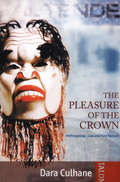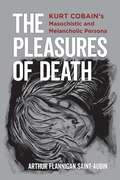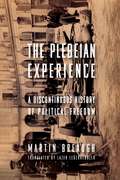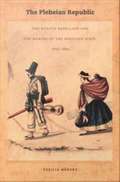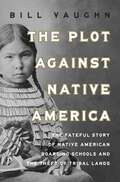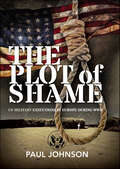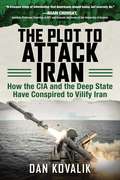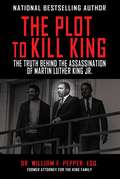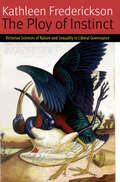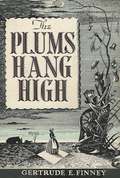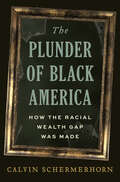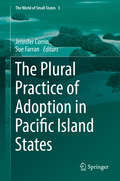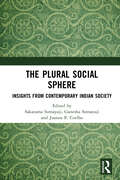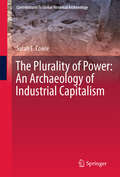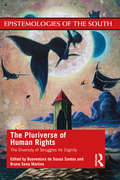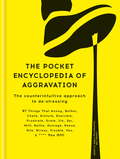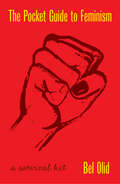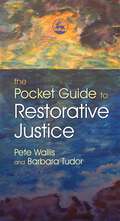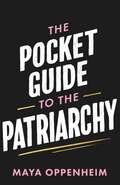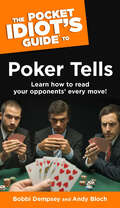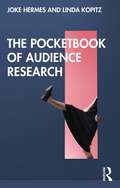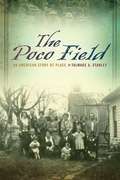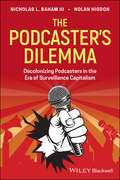- Table View
- List View
The Pleasure of the Crown
by Dara CuhaneAnthropologists have traditionally studied Europe's "others" and the marginalized and excluded within Europe's and North America's boundaries. This book turns the anthropologist's spyglass in the opposite direction: on the law, the institution that quintessentially embodies and reproduces Western power. The Pleasure of the Crown offers a comprehensive look at how Canadian, particularly British Columbian, society "reveals itself" through its courtroom performances in Aboriginal title litigation. Rather than asking what cultural beliefs and practices First Nations draw on to support their appeals for legal recognition of Aboriginal title, Culhane asks what assumptions, beliefs, and cultural values the Crown relies on to assert and defend their claims to hold legitimate sovereignty and jurisdiction over lands and resources in B.C. What empirical evidence does the Crown present to bolster its arguments? What can thus be learned by anthropologists and the public at large about the historical and contemporary culture of the powerful? Focusing in particular on the Gitksan and Wet'suwet'en case, the book traces the trial of Delgamuukw. v. Regina from its first hearing during 1987 and 1991 to its successful appeal to the Supreme Court of Canada, which issued a landmark ruling on the case on December 11, 1997.
The Pleasures of Death: Kurt Cobain’s Masochistic and Melancholic Persona
by Arthur Flannigan Saint-AubinThe year 2019 marked the twenty-fifth anniversary of the death of Kurt Cobain, an artist whose music, words, and images continue to move millions of fans worldwide. As the first academic study that provides a literary analysis of Cobain’s creative writings, Arthur Flannigan Saint-Aubin’s The Pleasures of Death: Kurt Cobain’s Masochistic and Melancholic Persona approaches the journals and songs crafted by Nirvana’s iconic front man from the perspective of cultural theory and psychoanalytic aesthetics.Drawing on critiques and reformulations of psychoanalytic theory by feminist, queer, and antiracist scholars, Saint-Aubin considers the literary means by which Cobain creates the persona of a young, white, heterosexual man who expresses masochistic and melancholic behaviors. On the one hand, this individual welcomes pain and humiliation as atonement for unpardonable sins; on the other, he experiences a profound sense of loss and grief, seeking death as the ultimate act of pleasure. The first-person narrators and characters that populate Cobain’s texts underscore the political and aesthetic repercussions of his art. Cobain’s distinctive version of grunge, understood as a subculture, a literary genre, and a cultural practice, represents a specific performance of race and gender, one that facilitates an understanding of the self as part of a larger social order. Saint-Aubin approaches Cobain’s writings independently of the artist’s biography, positioning these texts within the tradition of postmodern representations of masculinity in twentieth-century American fiction, while also suggesting connections to European Romantic traditions from the nineteenth century that postulate a relation between melancholy (or depression) and creativity. In turn, through Saint-Aubin’s elegant analysis, Cobain’s creative writings illuminate contradictions and inconsistencies within psychoanalytic theory itself concerning the intersection of masculinity, masochism, melancholy, and the death drive.By foregrounding Cobain’s ability to challenge coextensive links between gender, sexuality, and race, The Pleasures of Death reveals how the cultural politics and aesthetics of this tragic icon’s works align with feminist strategies, invite queer readings, and perform antiracist critiques of American culture.
The Plebeian Experience: A Discontinuous History of Political Freedom (Columbia Studies in Political Thought / Political History)
by Martin BreaughHow do people excluded from political life achieve political agency? Through a series of historical events that have been mostly overlooked by political theorists, Martin Breaugh identifies fleeting yet decisive instances of emancipation in which people took it upon themselves to become political subjects. Emerging during the Roman plebs's first secession in 494 BCE, the plebeian experience consists of an underground or unexplored configuration of political strategies to obtain political freedom. The people reject domination through political praxis and concerted action, therefore establishing an alternative form of power. Breaugh's study concludes in the nineteenth century and integrates ideas from sociology, philosophy, history, and political science. Organized around diverse case studies, his work undertakes exercises in political theory to show how concepts provide a different understanding of the meaning of historical events and our political present. The Plebeian Experience describes a recurring phenomenon that clarifies struggles for emancipation throughout history, expanding research into the political agency of the many and shedding light on the richness of radical democratic struggles from ancient Rome to Occupy Wall Street and beyond.
The Plebeian Republic: The Huanta Rebellion and the Making of the Peruvian State, 1820-1850
by Cecilia MéndezCombining social and political history, The Plebeian Republic challenges well-established interpretations of state making, rural society, and caudillo politics during the early years of Peru's republic. Cecilia Mndez presents the first in-depth reconstruction and analysis of the Huanta rebellion of 1825-28, an uprising of peasants, muleteers, landowners, and Spanish officers from the Huanta province in the department of Ayacucho against the new Peruvian republic. By situating the rebellion within the broader context of early-nineteenth-century Peruvian politics and tracing Huanta peasants' transformation from monarchist rebels to liberal guerrillas, Mndez complicates understandings of what it meant to be a patriot, a citizen, a monarchist, a liberal, and a Peruvian during a foundational moment in the history of South American nation-states. In addition to official sources such as trial dossiers, census records, tax rolls, wills, and notary and military records, Mndez uses a wide variety of previously unexplored sources produced by the mostly Quechua-speaking rebels. She reveals the Huanta rebellion as a complex interaction of social, linguistic, economic, and political forces. Rejecting ideas of the Andean rebels as passive and reactionary, she depicts the barely literate insurgents as having had a clear idea of national political struggles and contends that most local leaders of the uprising invoked the monarchy as a source of legitimacy but did not espouse it as a political system. She argues that despite their pronouncements of loyalty to the Spanish crown, the rebels' behavior evinced a political vision that was different from both the colonial regime and the republic that followed it. Eventually, their political practices were subsumed into those of the republican state.
The Plot Against Native America: The Fateful Story of Native American Boarding Schools and the Theft of Tribal Lands
by Bill VaughnThe first narrative history revealing the entire story of the development, operation, and harmful legacy of the Native American boarding schools—and how our nation still has much to resolve before we can fully heal.When Europeans came to the Americas centuries ago, too many of them brought racism along with them. Even presidents such as George Washington, Thomas Jefferson, and Andrew Jackson each had different takes on how to solve the &“Indian Problem&”—none of them beneficial for the Natives. In the early 1800s, the federal government and various church denominations devised the &“Indian Boarding Schools,&” in which Native children were forced to give up their Native languages, clothes, and spiritual beliefs for a life of cultural assimilation. Many of the children were abused sexually—and a shocking number died of pneumonia, tuberculosis, and other diseases. Sizable graveyards were found at many of these boarding schools. In 2021, the mass graves of First Nations children were found at the remains of some Canadian boarding schools, and the Pope traveled to Canada to apologize. In May 2022, U.S. Secretary of the Interior Deb Haaland released the first installment of an investigation into Native American boarding schools in the United States. It was the tip of the iceberg. The findings were shocking: the investigation revealed that the boarding school system emphasized manual labor and vocational training, which failed to prepare indigenous students for life in a capitalist economy. Despite the plot against Native America, tribal cultures have endured and are now flourishing. Indigenous birth rates are higher than those of white communities. Tribal councils across Indian Country are building their own herds of bison. As the tribes rebuild and reinvigorate their culture, the Catholic Church in America is fading. Some thirty dioceses have declared bankruptcy because of lawsuits brought by the victims of the sexual predators among priests and nuns. Native Americans seeking reparations for lost land are looking directly at the Vatican.
The Plot of Shame: US Military Executions in Europe During WWII
by Paul JohnsonThe Oise-Aisne American Cemetery is the last resting place of 6,012 American soldiers who died fighting in a small portion of Northern France during the First World War. The impressive cemetery is divided into four plots marked A to D. However, few visitors are aware that across the road, behind the immaculate façade of the superintendent’s office, unmarked and completely surrounded by impassable shrubbery, is Plot E, a semi-secret fifth plot that contains the bodies of ninety-four American soldiers. These were men who were executed for crimes committed in the European Theater of Operations during and just after the Second World War. Originally, the men whose death sentences were carried out were buried near the sites of their executions in locations as far afield as England, France, Belgium, Germany, Italy, and Algeria. A number of the men were executed in the grounds of Shepton Mallet prison in Somerset – the majority of whom were hanged in the execution block, with two being shot by a firing squad in the prison yard. The executioner at most of the hangings was Thomas William Pierrepoint, assisted mainly by his more-famous nephew Albert Pierrepoint. Then, in 1949, under a veil of secrecy, the ‘plot of shame’, as it has become known, was established in France. The site does not exist on maps of the cemetery and it is not mentioned on the American Battle Monuments Commission’s website. Visits to Plot E are not encouraged. Indeed, public access is difficult because the area is concealed, surrounded by bushes, and is closed to visitors. No US flag is permitted to fly over the plot and the graves themselves have no names, just small, simple stones the size of index cards that are differentiated only by reference numbers. Even underground the dishonored are set apart, with each body being positioned with its back to the main cemetery. In The Plot of Shame, the historian Paul Johnson uncovers the history of Plot E and the terrible stories of wartime crime linked to it.
The Plot to Attack Iran: How the CIA and the Deep State Have Conspired to Vilify Iran
by Dan Kovalik* “Spectacular!” * –Oliver StoneThe world has a lot of questions about the current state of affairs between the United States and Iran… How has the US undermined democracy in Iran? Is Iran really trying to develop nuclear weapons? How has US waged a terror campaign against Iran for years? How is it that the US and Israel, rather than Iran, are destabilizing the Middle East? How has Iran helped the US in the war on terror?In The Plot to Attack Iran, critically acclaimed author Dan Kovalik exposes what Americans have known about the Islamic Republic is largely based on propaganda. The 1953 coup that deposed the democratically-elected prime minister for a US-selected shah? Sold to average American citizens as a necessity to protect democracy and guard against communism. In truth, it was America’s lust for Iranian oil and power that installed the tyrannical shah. The Iranian hostage crisis that miraculously ended with Ronald Reagan’s inauguration as president? Evidence shows that Reagan negotiated with the hostage-takers to hold the hostages until his inauguration.Iran, once known as Persia, is one of the oldest nations on earth. It has a rich history and a unique culture, and is bordered by seven countries, the Caspian Sea, and the Persian Gulf. It is literally the intersection of many countries and many worlds. It has a population of eighty million people and occupies a space nearly the size of Alaska, the largest US state; it is the seventeenth largest country in the world. Over the past century, Iran’s greatest resource, and at the same time its greatest curse, has been its oil. For it is oil that has caused the United States and other world powers to systematically attempt to destroy Iran. After a greedy Iranian monarch sold all of Iran’s oil and natural gas reserves to a British financier in 1901, the West started just one of its many invasions and exploitations of the country.Using recently declassified documents and memos, as well as first-hand experience of the country, critically-acclaimed author Dan Kovalik will change the way you think about Iran, and especially what you think of US interference there. Learn how the United States vilifies its enemies, and accuses them of unspeakable horror to mask its own terrible crimes. Not only does the illuminating and important The Plot to Attack Iran delve into the current incendiary situation, but it also predicts what could happen next, and what needs to be done before it is too late.
The Plot to Kill King: The Truth Behind the Assassination of Martin Luther King Jr.
by Esq. William F. PepperWilliam Pepper was James Earl Ray’s lawyer in the trial for the murder of Martin Luther King, Jr., and even after Ray’s conviction and death, Pepper continues to adamantly argue Ray’s innocence. This myth-shattering expose is a revised, updated, and heavily expanded volume of Pepper’s original best-selling and critically-acclaimed book of the same name, with twenty-six years of additional research included. The result reveals dramatic new details of the night of the murder, the trial, and why Ray was chosen to take the fall for an evil conspiracy-a government-sanctioned assassination of our nation’s greatest leader.Orders to Kill will release in sync with a feature film adaptation of it that will be directed by Lee Daniels, have Hugh Jackman star as the author, and be produced by Millennium Films. The film will portray Pepper in trial and his proof of an assassination plot masterminded by J. Edgar Hoover and the FBI, the CIA, army intelligence, the mafia, and Memphis police. The plan, according to Pepper, was for a team of United States Army Special Forces snipers to kill King, but just as they were taking aim, a back-up civilian assassin pulled the trigger.In Orders to Kill, Pepper shares the evidence and testimonies that prove that Ray was a fall-guy chosen by those who viewed King as a dangerous revolutionary. His findings make the book one of the most important ones of our time-the uncensored story of the murder of an American hero and disturbing revelations about secret under-workings of the government and how it continues, even today, to obscure and obfuscate the truth.Skyhorse Publishing, as well as our Arcade imprint, are proud to publish a broad range of books for readers interested in history--books about World War II, the Third Reich, Hitler and his henchmen, the JFK assassination, conspiracies, the American Civil War, the American Revolution, gladiators, Vikings, ancient Rome, medieval times, the old West, and much more. While not every title we publish becomes a New York Times bestseller or a national bestseller, we are committed to books on subjects that are sometimes overlooked and to authors whose work might not otherwise find a home.
The Ploy of Instinct: Victorian Sciences of Nature and Sexuality in Liberal Governance (Forms of Living)
by Kathleen FredericksonIt is paradoxical that instinct became a central term for late Victorian sexual sciences as they were elaborated in the medicalized spaces of confession and introspection, given that instinct had long been defined in its opposition to self-conscious thought. The Ploy of Instinct ties this paradox to instinct’s deployment in conceptualizing governmentality.Instinct’s domain, Frederickson argues, extended well beyond the women, workers, and “savages” to whom it was so often ascribed. The concept of instinct helped to gloss over contradictions in British liberal ideology made palpable as turn-of-the-century writers grappled with the legacy of Enlightenment humanism. For elite European men, instinct became both an agent of “progress” and a force that, in contrast to desire, offered a plenitude in answer to the alienation of self-consciousness.This shift in instinct’s appeal to privileged European men modified the governmentality of empire, labor, and gender. The book traces these changes through parliamentary papers, pornographic fiction, accounts of Aboriginal Australians, suffragette memoirs, and scientific texts in evolutionary theory, sexology, and early psychoanalysis.
The Plums Hang High
by Gertrude E. FinneyA young English couple sail to the new land where fortunes like plums are for the taking. But nothing has prepared Hannah Maria, who trusts in the comforts of her brother's home, for the crude life of a Midwest farm in 1868. Only a deep love and her proud spirit sustain her in early bitterness and despair.Jethro, with no experience on the land, wants to be a farmer. A kindly, hardworking couple take the tyros to their hearts. Some lessons are bitter, some laughable, as they become farmer folk. Their first farm turns out to be worthless and they must hire out again on shares. Tender and poignant is the tale of the dress washed out each night, of the two who ran away to see the circus and sold the family's valuable horse. In a great blizzard Jethro goes for nurse and doctor, returns to find a baby has been born without their help. At last Jethro is famous for his Clydesdales.They have an assured position and honors come.The Plums Hang High has a sense of the drama of life itself, of generation succeeding generation.
The Plunder of Black America: How the Racial Wealth Gap Was Made
by Calvin SchermerhornThe long history of the racial wealth gap in America told through the stories of seven Black families who struggled to build wealth over multiple generations Wealth is central to the American pursuit of happiness and is an overriding measure of well-being. Yet wealth is conspicuously absent from African American households. Why do some 3.5 million Black American families have zero or negative wealth? Historian Calvin Schermerhorn traces four hundred years of Black dispossession and decapitalization—what Frederick Douglass called plunder—through the stories of families who have strived to earn and keep the fruits of their toils. Their struggles reveal that the ever-evolving strategies to strip Black income and wealth have been critical to sustaining a structure of racialized disadvantage. These accounts also tell of the quiet heroism of those who worked to overcome obstacles and defy the plunder. From the story of Anthony and Mary Johnson, abducted from Angola and brought to Virginia in 1619, to the enslaved Black workers dispossessed by the Custis-Washington family, to Venture Smith (born Broteer Furro), who purchased his freedom, to three generations of a family enslaved in the South who moved north after Emancipation, to the Tulsa massacre and the subprime lending crisis, Schermerhorn shows that we cannot reckon with today&’s racial wealth inequality without understanding its unrelenting role in American history.
The Plural Practice of Adoption in Pacific Island States (The World of Small States #5)
by Sue Farran Jennifer CorrinThis book deals with adoption laws and practices in small island developing states in the Pacific. It commences with an introductory chapter giving an overview of relevant laws and practices and pulling together the common themes and issues raised in the book. Each of the following chapters deals with adoption law and practice in a small South Pacific country. The countries in question all have plural legal systems, with systems of adoption and its closest customary law equivalent operating side by side. In most cases, there is an insufficiently developed relationship between the two systems, which has resulted in a number of problems. Additionally, international law adds another layer of complexity. Size and remoteness in the small states under discussion have a profound impact on local practices.
The Plural Social Sphere: Insights from Contemporary Indian Society
by Sakarama SomayajiThis book reiterates pluralism as the basic feature of the Indian social sphere. It highlights challenges to the continuity of the plural fabric of India’s society and culture. Acknowledging that socio-political concerns on women’s issues do not always find adequate representation in social science texts, the book explores issues and policies related to gender. It locates the roots of feminist fundamentalism, studies the reactions to it, and brings forth the demands relating to new agendas and strategies for feminism. The authors also present empirical studies on issues faced by minority communities in India.An important contribution, this book will be of interest to scholars and researchers of sociology, political sociology, gender studies, exclusion studies, South Asian studies, Affirmative action, and political science.
The Plurality of Power
by Sarah CowieHow do people experience power within capitalist societies? Research presented here explicitly addresses the notion of pluralistic power, which encompasses both productive and oppressive forms of power and acknowledges that nuanced and multifaceted power relations can exist in combination with binary dynamics such as domination and resistance. This volume addresses growing interests in linking past and present power relationships engendered by capitalism and in conducting historical archaeology as anthropology. The Plurality of Power: Industrial Capitalism and the Nineteenth-Century Company Town of Fayette, Michigan, explores the subtle distribution of power within American industrial capitalism through a case study of a company town. Issues surrounding power and agency are explored in regard to three heuristic categories of power. In the first category, the company imposed a system of structural, class-based power that is most visible in hierarchical differences in pay and housing, as well as consumer behavior. A second category addresses disciplinary activities surrounding health and the human body, as observed in the built environment, medical artifacts, disposal patterns of industrial waste, incidence of intestinal parasites, and unequal access to healthcare. The third ensemble of power relations is heterarcical and entwined with non-economic capital (social, symbolic, and cultural). Individuals and groups drew upon different forms of capital to bolster social status and express identity both within and apart from the corporate hierarchy. The goal in combining these diverse ideas is to explore the plurality of power relationships in past industrial contexts and to assert their relevance in the anthropology of capitalism.
The Pluriverse of Human Rights: The Diversity of Struggles for Dignity (Epistemologies of the South)
by Boaventura de Sousa Santos and Bruno Sena MartinsThe impasse currently affecting human rights as a language used to express struggles for dignity is, to a large extent, a reflection of the epistemological and political exhaustion which blights the global North. Since the global hegemony of human rights as a language for human dignity is nowadays incontrovertible, the question of whether it can be used in a counter-hegemonic sense remains open. Inspired by struggles from all corners of the world that reveal the potential but, above all, the limitations of human rights, this book offers a highly conditional response. The prevailing notion of human rights today, as the hegemonic language of human dignity, can only be resignified on the basis of answers to simple questions: why does so much unjust human suffering exist that is not considered a violation of human rights? Do other languages of human dignity exist in the world? Are these other languages compatible with the language of human rights? Obviously, we can only find satisfactory answers to these questions if we are able to envisage a radical transformation of what is nowadays known as human rights. Herein lies the challenge posed by the Epistemologies of the South: reconciling human rights with the different languages and forms of knowledge born out of struggles for human dignity.
The Pocket Disaster Survival Guide: What to Do When the Lights Go Out
by Harris J. Andrews J. Alexander BowersWhether it’s a hurricane bearing down on a home near the coast or a power line downed in a snowstorm near a car, are you prepared for these situations? This slim handbook will provide you with all the information you need to ensure that you, your family, and your pets can weather any emergency crisis. Learn the necessity of backing up important documents, how to safely store food and water for more than a day, and how to communicate with your family and emergency personnel should a disaster strike.
The Pocket Encyclopedia of Aggravation: The Counterintuitive Approach to De-stressing
by Laura LeeAaarghgghhh!!@#%&*!!! Every time your mobile phone rings, it's an automated PPI call... You've forgotten one of your million different internet passwords... Once again, you're stuck in the slowest lane at the supermarket...This book investigates 97 day-ruining events, slap-in-the-face moments and everyday aggravations, and explains why these things irritate us quite so much. Let's face it, the world is becoming an increasingly annoying place to live - and THE POCKET ENCYCLOPEDIA OF AGGRAVATION has the evidence to prove it. It has been scientifically proven that when we understand the science behind our daily grievances, our problems become less frustrating and easier to manage. This fact-filled book will help reduce the stress of your daily grind. Designed with enlightening diagrams and witty drawings, THE POCKET ENCYCLOPEDIA OF AGGRAVATION finally answers the question, why is that so f*cking annoying?
The Pocket Guide to Feminism: A Survival Kit
by Bel OlidA woman’s life is different. This is clear when a stranger’s catcall makes her feel targeted in the street. When politicians make off-the-cuff sexist remarks. When media commentators wade in with their condemnation of free, unrestricted abortion. When a father is praised to the skies for attending parents’ evening while the mother’s attendance is taken for granted. When they fire her because she’s pregnant. When they dismiss her medical symptoms as anxiety. To counter sexism today, we need to learn the art of self-defence. Today, feminism is more alive and more necessary than ever because discrimination against women has become more subtle and difficult to detect, yet it retains its paralysing power. With combative energy and acerbic wit, Bel Olid explains the key concepts of the current feminist struggle in a smart, radical and often counterintuitive way.
The Pocket Guide to Restorative Justice
by Pete Wallis Chris Slane Barbara TudorThis pocket-sized guide can be taken conveniently to meetings, interviews and visits, to be used as a quick reference point for information about the practical application of restorative justice. The book covers every stage of the process, from how a facilitator should prepare for taking on a new case, through initial contacts with victim and offender and facilitating meetings, to recording and evaluating a case. While acknowledging throughout the different possible ways of proceeding, the authors provide example prompts for steps such as writing to a victim for the first time, talking to the victim and offender ahead of their meeting, and initiating meetings. They use jargon-free language and provide helpful task checklists for speed and ease of reference. This is an invaluable companion for youth offending team workers, probation officers, prison staff, police, referral order volunteers, mediators and any professional needing to know about restorative justice.
The Pocket Guide to the Patriarchy
by Maya Oppenheim'This is a vital book. Hand this out in schools, in the workplace, everywhere. It's also beautifully written.' Olivia Colman'Brilliant. Patriarchy 101' Amnesty UK'Immersive and accessible' Dazed The essential guide for women everywhere, The Pocket Guide to the Patriarchy is full to the brim with unbelievable stats, shocking figures and emboldening knowledge to understand and fight the patriarchal systems holding all of us back.Across the world, women are still denied opportunities and rights. The home remains the most dangerous place for women to be worldwide; with the majority of homicide victims who are women being killed by partners or relatives. In some countries, women who get abortions after they are raped face jail time. Less than 20 per cent of landholders in the world are women. Despite all these truths, many would prefer to blame women. For not demanding a seat at the table. For walking home alone at night. For not working hard enough to overcome the odds that are stacked against them. In her first fact-filled, inclusive and energising book, Maya Oppenheim supplies you with the unforgettable realities, real-world anecdotes and tales of resistance to help you combat denial and continued injustice as the far-right grows and women's rights come under attack. If yet another rebuttal of patriarchy leaves you lost for words, this book can be pulled out of your pocket. Utilising her breadth of experience as Women's Correspondent at The Independent - and as the only women's correspondent at a UK news outlet - Maya leaves no stone left unturned and sparks new conversations on:Women's HealthSexual ViolenceCriminal Justice SystemSex WorkPolicingFar RightAbortion RightsAnd much more across 22 chapters.Combining poignant stories with startling evidence, The Pocket Guide to the Patriarchy is a blazing examination of the systems rigged against us and offers a way forward that could prompt sustainable reform and build a better world for us all.'Well-written, concise and necessary' Sarah Solemani'Enormously useful' Selma James, feminist thinker, campaigner and author
The Pocket Idiot's Guide to Poker Tells: Learn How to Read Your Opponents’ Every Move!
by Bobbi Dempsey Andy BlochRead your opponent . . . and rake in the chips. The world&’s best poker players can read their opponents&’ most subtle expressions and behaviors—no matter how hard their opponents try to hide them. A tapping foot, a change in vocal tone, and countless other clues &“tell&” an informed player what cards the opponent is holding and how they&’re likely to be played. The Pocket Idiot&’s Guide® to Poker Tells explains everything amateur poker players need to start interpreting tells and using them to develop poker intuition. In this Pocket Idiot&’s Guide®, you get: • Foolproof tips to help you recognize all kinds of tells. • Game-saving advice on avoiding tells yourself—and recognizing fake ones. • Surefire strategies for dealing with the five different types of player personalities. • Idiot-proof techniques for sharpening your tell-spotting skills.
The Pocket Oracle and Art of Prudence
by Baltasar GraciánWritten over 350 years ago, The Pocket Oracle and the Art of Prudence is a charming collection of 300 witty and thought-provoking aphorisms. From the art of being lucky to the healthy use of caution, these elegant maxims were created as a guide to life, with further suggestions given on cultivating good taste, knowing how to refuse, the foolishness of complaining and the wisdom of controlling one's passions. Baltasar Gracian intended that these ingenious aphorisms would encourage each reader to challenge themselves both in understanding and applying each axiom.
The Pocketbook of Audience Research
by Joke Hermes Linda KopitzFocusing on qualitative methods, The Pocketbook of Audience Research uses contemporary, global television and cross-media examples to explain essential approaches to audience research and outline how they can be employed. This handy guide is divided into three parts: the first part, ‘Watching Post-Television’, offers ‘television’ as a shortcut to understanding today’s platform media and gives an introduction to key theoretical terms such as representation, identity and community. The second part, ‘Methods with Method’, introduces different methodological tools to study cross-media texts and practices from an audience-led perspective. With individual chapters covering ethnography, textual analysis and visual methodologies, this part also functions as a toolset and starting point for small research projects. The third part, ‘Methods in Action’, offers a variety of recent case studies to show how these methodological principles work in practice. Drawing on different genres from drama to sports, The Pocketbook of Audience Research gives a sense of what audience-led cross-media research can achieve. This concise, accessible book gives students, early-career researchers and creative professionals the tools to do useful and inspiring audience research, whether for a paper, a proposal or a market survey.
The Poco Field: An American Story of Place
by Talmage A. StanleyIn this beautifully written meditation on identity and place, Talmage A. Stanley tells the story of his grandparents' middle-class aspirations from the 1920s to the 1940s in the once-booming Pocahontas coalfields of southern West Virginia. Part lyrical family memoir and part social study, The Poco Field: An American Story of Place addresses a long-standing gap in Appalachian and American studies, illustrating the lives and choices of the middle class in the mid-twentieth century and delving into questions of place-based identity. Exploring the natural and built environments of the towns of Keystone, West Virginia and Newbern, Virginia, Stanley delineates the history of conflict and control of local industry and development. Through his grandparents' struggle for upward mobility into the middle class, Stanley narrates a history that counters ideas of Appalachia as an exception to American culture and history, presenting instead an image of the region as an emblem of America at large. Stanley builds out from family and local history to examine broad structures of values and practices as they reflect and relate to place, showing how events such as the development of extensive mineworks, the ghettoization of the area's black residents, the catastrophic flooding of the Elkhorn Creek, and the fraud-induced failure of Keystone National Bank signal values that erode a place both literally and figuratively. Giving voice to activists now working to break down boundaries and assumptions that long have defined and restricted the middle class in the global economy, The Poco Field also champions the creative potential of place for reinvigorating democratic society for the twenty-first century.
The Podcaster's Dilemma: Decolonizing Podcasters in the Era of Surveillance Capitalism
by Nolan Higdon Nicholas L. Baham IIIA fascinating exploration of modern podcasting as a tool for decolonization In The Podcaster's Dilemma: Decolonizing Podcasters in the Era of Surveillance Capitalism, Drs. Nolan Higdon and Nicholas Baham III connect contemporary podcasting to the broader history of the use of radio technology in the service of anti-colonial struggle and revolution. By organizing the book’s analysis of decolonization through podcasting via three distinct activities—interrogation and critique, counter-narrative, and call to action—the authors create a lens through which they analyze and evaluate the decolonizing potential of new podcasts. The book also critiques the threat to the decolonizing efforts of some modern podcasts by the growing phenomena of surveillance capitalism and the emerging podcast oligopoly. The Podcaster's Dilemma reveals both potential and challenges in the podcasting space as podcasters struggle to put forward insightful new narratives funded by anti-capitalist models. This important book also includes: A thorough introduction to the podcasters profiled in the book and an examination of how they’re using podcasts to decolonize themselves from colonial mentalities Practical discussions of how the profiled podcasters interrogate and critique the veracity of neoliberal, racist, imperialist, patriarchal, heterosexist, classist, and ableist white-centered ideologies Comprehensive explorations of the counter-narrative production phase of a decolonizing podcaster’s process In-depth treatments of the community activism created by decolonizing podcasts The Podcaster's Dilemma: Decolonizing Podcasters in the Era of Surveillance Capitalism is an indispensable new resource for critical media, communications, ethnic studies, and political science scholars, as well as undergraduate and graduate students. It is also perfect for anyone interested in the broad expansion of intersectional voices in dialogue about everything from political organizing to plant-based diets.
